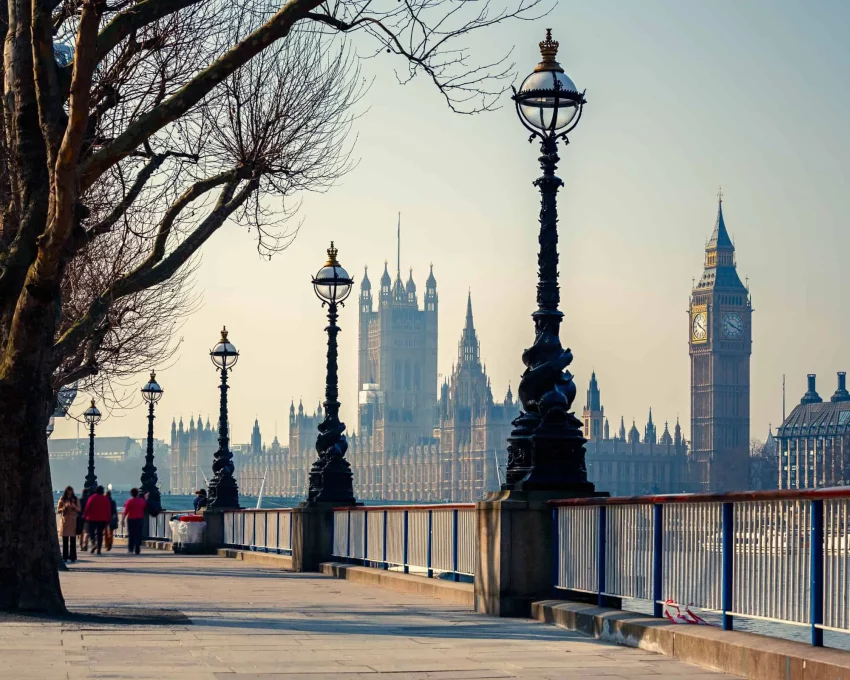Everything You Need To Know Before Visiting London

London, the vibrant and historic capital of the United Kingdom, is a city that has something for everyone. Whether you’re a first-time traveler or a seasoned globetrotter, visiting London can be an exciting adventure. However, to make the most of your trip and ensure a smooth, stress-free experience, it’s essential to be well-prepared. In this comprehensive guide, we’ll cover everything you need to know before visiting London, from weather and travel documents to accommodation, transportation, cultural etiquette, and more.
1. Weather and Climate
One of the first things to consider when planning your visit to London is the weather. The city experiences a temperate maritime climate with four distinct seasons:
- Spring (March to May)
- Summer (June to August)
- Autumn (September to November)
- Winter (December to February)
The best time to visit largely depends on your weather preferences. Summer is the most popular season for tourists, with pleasant temperatures and longer daylight hours. Spring and autumn offer milder weather, making it a great time for sightseeing. Winter can be chilly, but it’s the season for festive holiday markets and fewer crowds.
2. Visa and Travel Documents
Before you pack your bags, check the visa requirements for your country. Visitors from many countries can enter the UK for tourism without a visa for up to six months. However, it’s essential to have a valid passport, and some travelers may need to obtain a visitor visa in advance. Verify the latest visa regulations and plan accordingly to avoid any last-minute hassles.
For travel documents, make sure you have your passport, travel insurance, and any necessary reservations or itineraries on hand.
3. Currency and Money Matters
London uses the British Pound (GAP) as its official currency. While credit cards are widely accepted, it’s a good idea to carry some cash for small expenses and in case you come across places that don’t accept cards. ATMs are readily available throughout the city for currency exchange and withdrawals.
Before you travel, check the exchange rates and keep an eye on currency conversion fees, as they can vary between banks and exchange services.
4. Accommodation Options
London offers a wide range of accommodation options to suit different budgets and preferences. You can choose from hotels, hostels, vacation rentals, and even boutique guesthouses. When selecting your accommodation:
- Consider the location: Staying in central areas like Westminster or Covent Garden will give you easy access to major attractions.
- Read reviews and ratings: Websites like TripAdvisor and Booking.com can provide valuable insights from other travelers.
- Book in advance, especially during peak tourist seasons, to secure the best deals and availability.
5. Transportation
Getting around in London is relatively straightforward thanks to its extensive public transportation system. The London Underground (the Tube), buses, trams, and trains cover the city and its suburbs. Here are a few transportation tips:
- Oyster Cards and Contactless Payments: Consider purchasing an Oyster card or using contactless payments for convenient and discounted travel within the city.
- Travel Zones: Understand the travel zones and fares, as they can vary depending on where you’re going.
- Walking: London is a walk able city, and you can explore many attractions on foot, so wear comfortable shoes.
6. Language and Communication
English is the primary language spoken in London. While most residents are fluent in English, you might encounter various accents and local expressions. It’s helpful to learn a few common English phrases for polite interactions and emergencies.
To stay connected, consider purchasing a local SIM card or using public Wi-Fi, which is widely available in cafes, hotels, and public spaces.
7. Attractions and Sightseeing
London boasts a plethora of iconic landmarks and attractions, and planning your itinerary is crucial to make the most of your visit. Must-visit places include:
- The British Museum
- The Tower of London
- Buckingham Palace
- The Houses of Parliament and Big Ben
- The Tate Modern
- The West End Theatres
Before you go, check the opening hours, entry fees, and any special events or exhibitions. Consider purchasing tickets in advance to skip long queues.
8. Safety and Health
London is generally a safe city for travelers. However, it’s always wise to take precautions:
- Keep your belongings secure.
- Be aware of your surroundings, especially in crowded areas.
- Ensure you have travel insurance to cover unexpected medical expenses.
For healthcare needs, London has an excellent healthcare system, and you can find pharmacies (chemists) throughout the city.
9. Food and Dining
London’s culinary scene has evolved significantly over the years, offering a diverse array of dining options. You can find traditional British dishes like fish and chips, as well as international cuisine from around the world.
- Try local street food from markets like Borough Market.
- Explore the diverse neighborhoods for authentic international flavors.
- Be mindful of your dietary preferences and any allergies when dining out.
10. Cultural Etiquette
Understanding British culture and etiquette will help you navigate social interactions and make a positive impression. Some general etiquette tips include:
- Queuing (waiting in line) is taken seriously in the UK.
- Always say “please” and “thank you.”
- Tipping is customary, typically around 10-15% in restaurants.
11. Packing Tips
Packing for London can be challenging due to its ever-changing weather. Here are some packing tips:
- Layered clothing to adapt to varying temperatures.
- Comfortable walking shoes for exploring the city.
- An umbrella or a waterproof jacket, especially if you’re visiting during the rainy season.
12. Local Events and Festivals
Check the local events and festivals happening during your visit. London hosts a variety of cultural events, parades, and festivals throughout the year. Some popular events include:
- Notting Hill Carnival
- New Year’s Eve fireworks at the London Eye
- Wimbledon Championships
Participating in local events can provide a unique and memorable experience.
13. Shopping
London is a shopper’s paradise with a wide range of shopping options. Some popular shopping areas include:
- Oxford Street for high street shopping.
- Harrods for luxury brands.
- Camden Market for unique and eclectic finds.
Don’t forget to pick up some London-themed souvenirs to remember your trip.
14. Getting Around London
To get around the city efficiently:
- Familiarise yourself with the public transportation routes.
- Use apps like City mapper or Google Maps to plan your journeys.
- Consider walking or cycling for short distances to explore hidden gems.
15. Travel Tips and Hacks
To make your trip to London as enjoyable and cost-effective as possible, consider the following travel tips:
- Use apps like Time Out London for event listings and restaurant recommendations.
- Take advantage of free or discounted admission to museums and attractions during specific times or days.
- Consider a London Pass for access to multiple attractions and discounts on dining and shopping.
16. Conclusion
In conclusion, London is a city of diverse experiences, rich history, and countless opportunities for exploration. By being well-prepared and informed about everything you need to know before visiting, you can make the most of your journey and create lasting memories.
Remember to conduct your own research, verify the latest information, and plan according to your preferences. With the right preparation, you can navigate London with confidence and enjoy its incredible cultural heritage, modern marvels, and warm hospitality.
Before you embark on your journey, it’s essential to keep in mind the anchor text link you provided: “Stressful Style” For more travel tips and advice, you can visit Stressful Style.
Safe travels, and may your visit to London be an unforgettable experience!




Leave a Reply